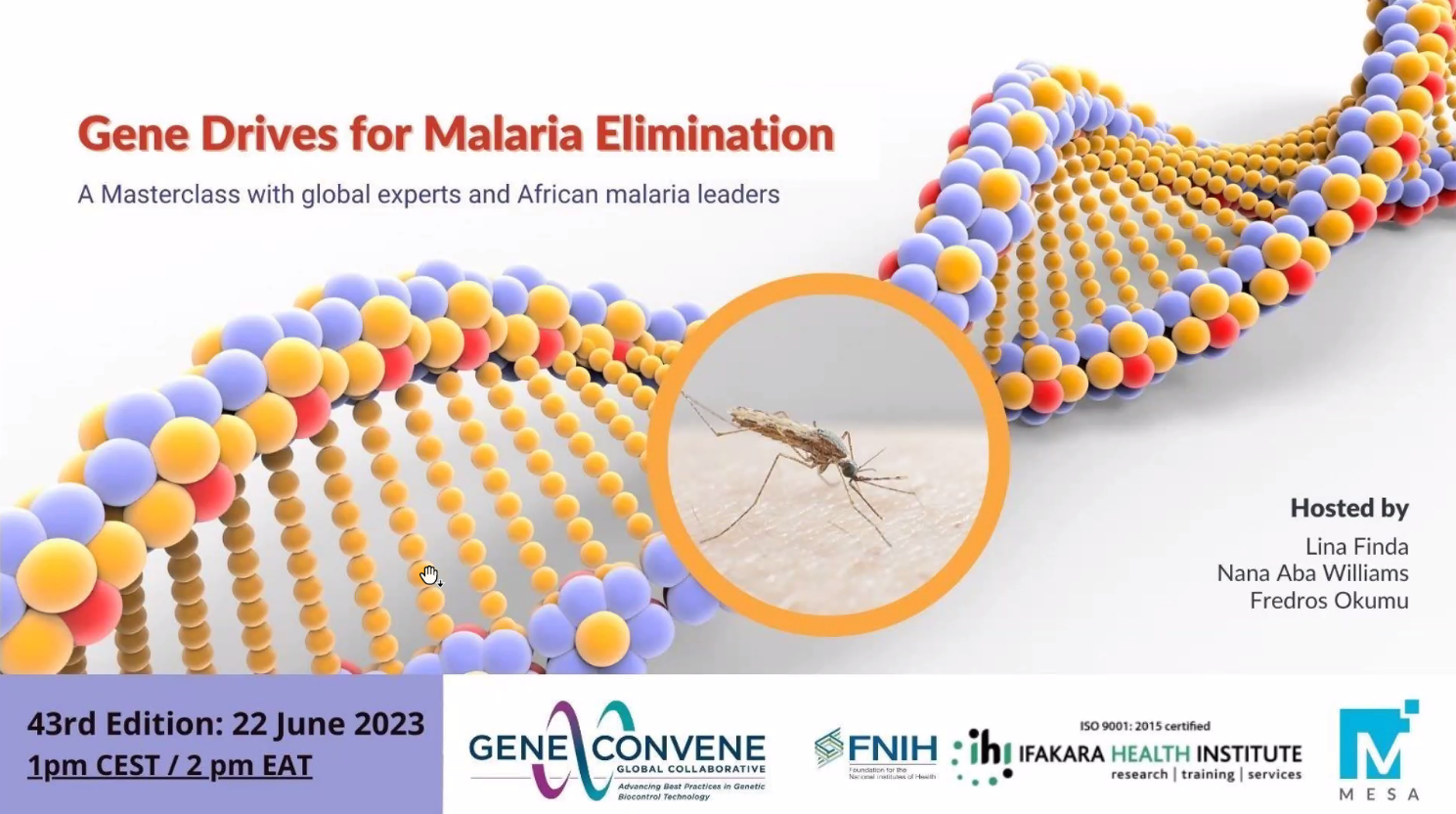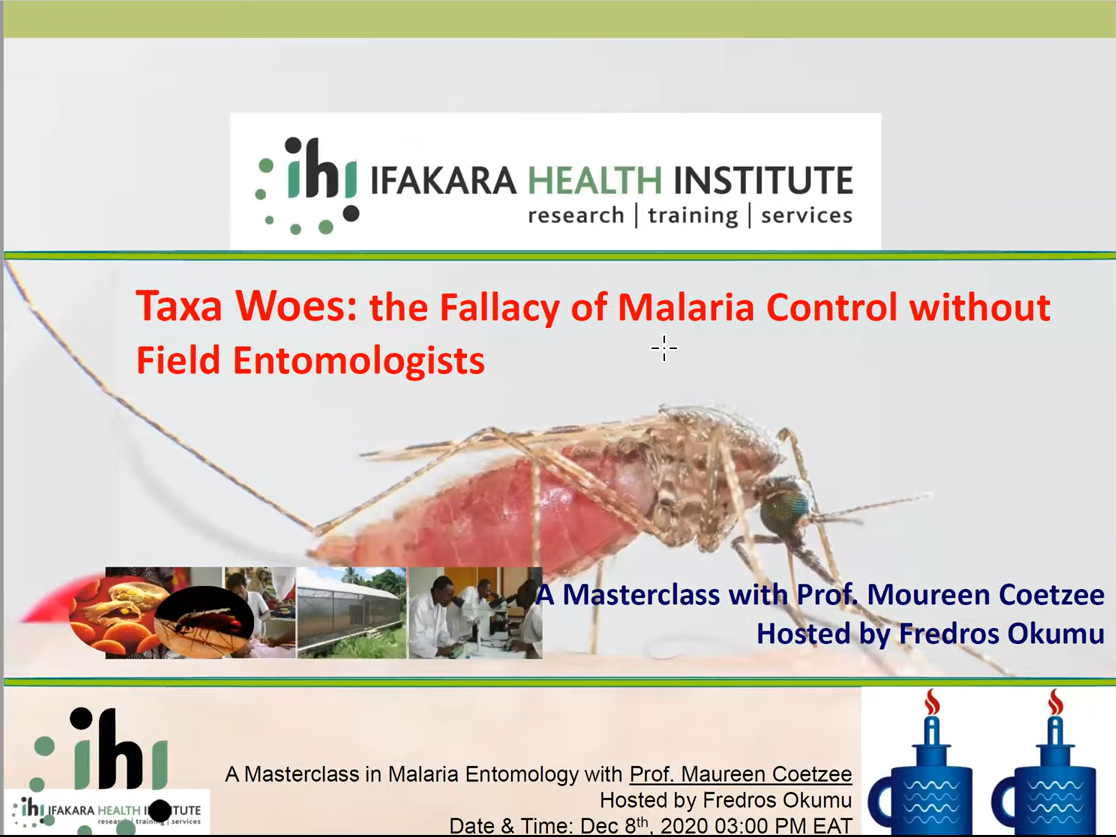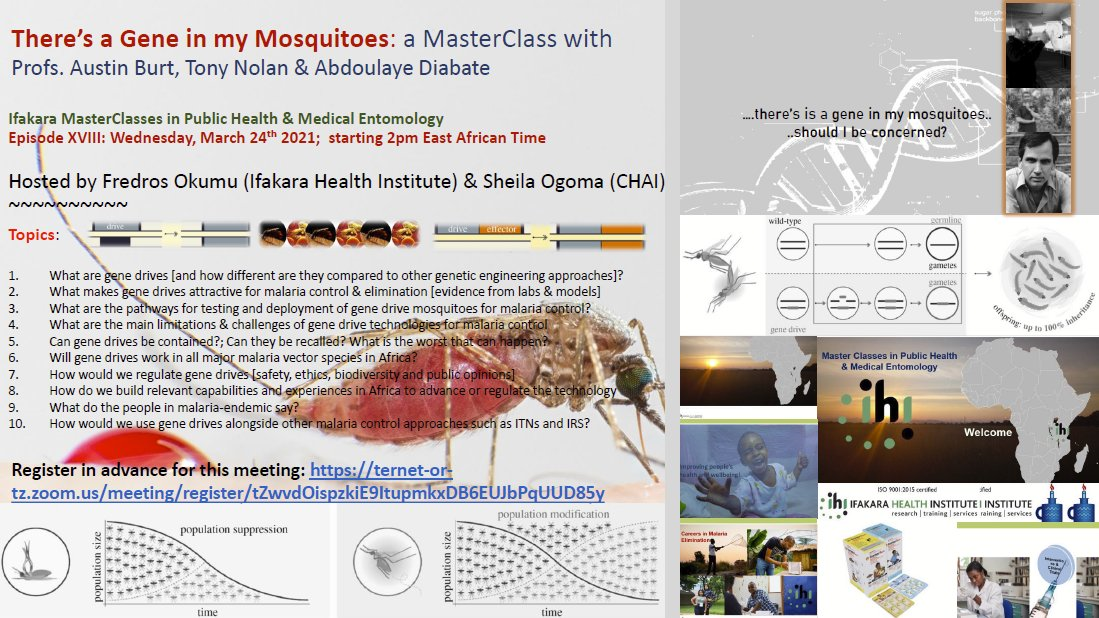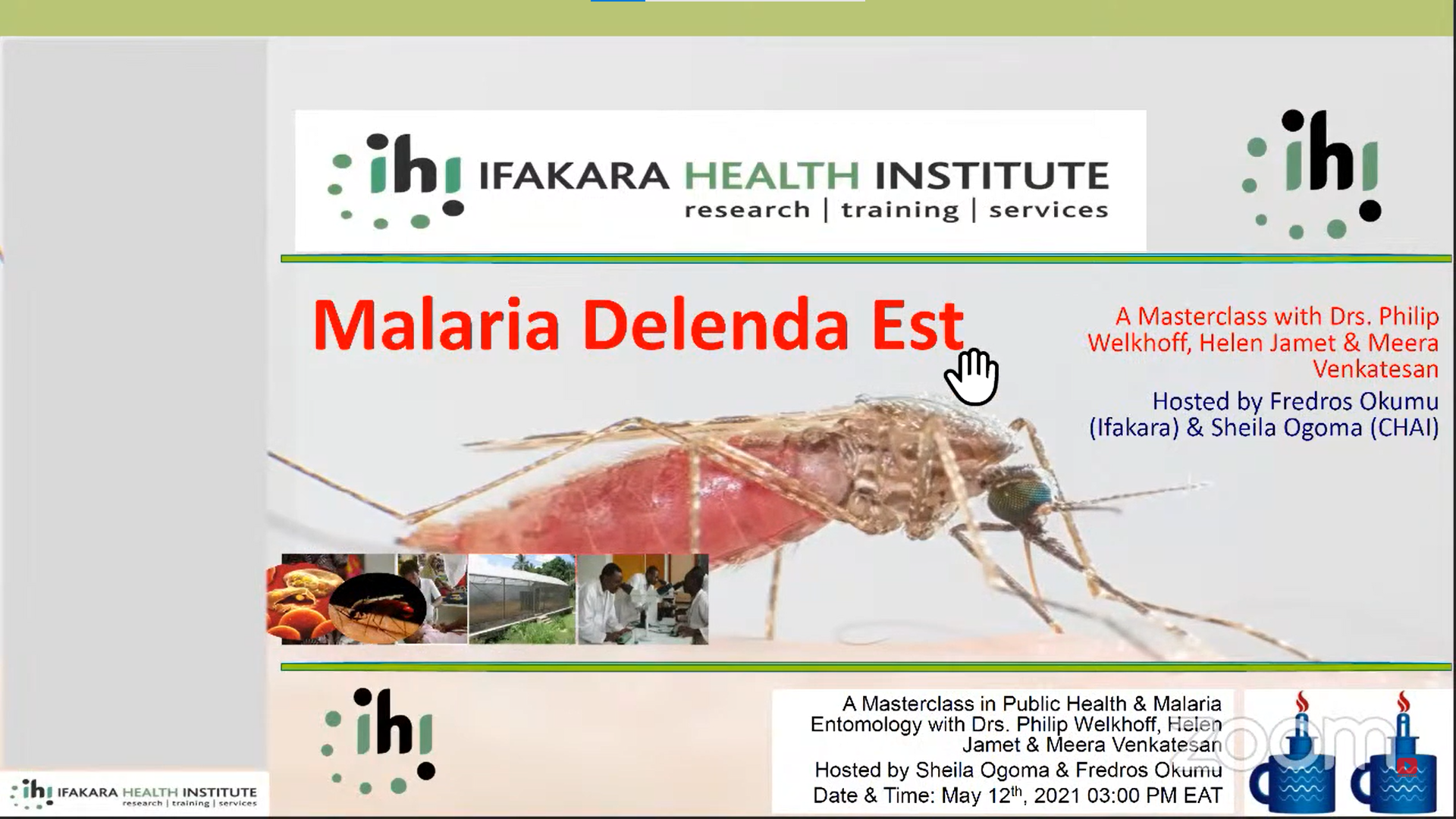Ifakara Masterclass Edition 43- Gene Drives for Malaria Elimination: a Masterclass with Global Experts and African Malaria Leaders
Collaborator(s): MESA, Spain; Liverpool School of Tropical Medicine (LSTM), United Kingdom; Pan-African Mosquito Control Association (PAMCA), Kenya; Kenya Medical Research Institute (KEMRI), Kenya; Imperial College London, United Kingdom
Published: 22/06/2023
The 43rd edition of the masterclass hosted by Fredros Okumu and Lina Finda from Ifakara Health Institute (IHI) Nana Aba Williams from MESA features experts from different institutions including the Liverpool School of Tropical Medicine , Imperial College London , the Pan African Mosquito Control Association (PAMCA) , the Kenyan Medical Research Institute (KEMRI) and many more, gathered to share their technical knowledge and experience on the topic.
The masterclass, moderated by Dr. Fredros Okumu, began with a reflection on the growing recognition of gene drive technologies’ potential, in the face of increasing challenges faced by malaria-endemic countries, especially in Africa. According to Dr. Okumu, gene drive technologies hold a lot of potential as a tool which could help address some of these challenges and accelerate progress in the fight against malaria. Prof. Austin Burt, Imperial College London, agreed that gene drives offer much promise and could have a substantial impact on the malaria burden. He also added that the technology is not a silver bullet, and we will need all tools at our disposal to eliminate the disease.
The open discussion then shifted to an explanation of how gene drive technology works and an overview of the different types of gene drives which are currently being developed to control malaria. Prof. George Christophides, Imperial College London, and Dr. Dickson Wilson Lwetoijera, IHI, took the floor to highlight a recent scientific breakthrough achieved by global malaria research program Transmission Zero : the generation of the first transgenic mosquito strain to be made in Africa . Dr. Damaris Matoke-Muhia, KEMRI, shared insights from her learnings on the ground in Kenya, and specifically regarding the perspectives of different stakeholders — including community members, scientists, health workers and policymakers — towards gene drive technologies. Prof. Charles Mbogo, PAMCA, stressed the importance of considering how gene drive technologies could complement other novel malaria control tools, such as attractive targeted sugar baits, and work in tandem with them.
This was followed by a more technical deep dive, during which participants took a closer look at the recent history of gene drive technology, and covered topics such as fitness costs, countries’ readiness for molecular surveillance and monitoring, and the multiplicity of malaria vectors. Attendees were left with a comprehensive understanding of different aspects related to the use of gene drives for malaria elimination.



